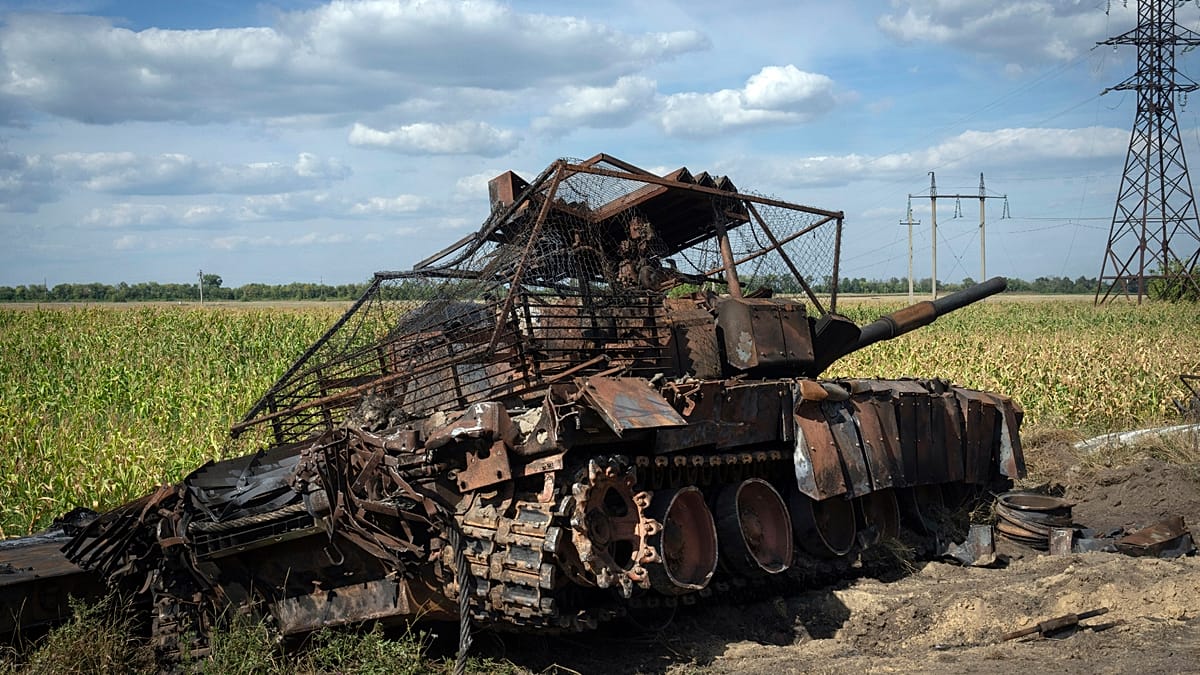Italian companies still operating in the Russian Federation are filling the Kremlin’s war coffers despite active EU sanctions, according to data compiled by the Kyiv School of Economics as part of its Leave Russia project.
According to Andrii Onopriienko, the head of the project, around €346 million in contributions are paid by Italian companies each year for a total of around €1.037bn since the full-scale attack on Russia’s western neighbour was launched.
About half of this money, Onopriienko confirms, “was invested in military spending to finance the war against Ukraine.”
Some companies are on the fence
The Leave Russia initiative was launched to create an online database for monitoring the activities of the main multinationals still doing business in Russia over the past 3 years.
The database classifies companies according to their country of origin, the sector in which they operate and their current status. That is, whether they are still commercially active in the country, have suspended operations or have left the Federation as a result of sanctions.
According to data from Russian tax authorities, financial information available online and press monitoring, 146 Italian companies still operate in Russia, with around thirty announcing they plan to leave the country at some point, while around 70 others have maintained a legal presence on Russian territory.
The rest of the companies continue to export to Russia.
The US and Germany top the list
Italian giants such as chocolate makers Ferrero, pasta producer Barilla and women’s hosiery specialist Calzedonia are some of the companies that have maintained their business activities.
Gas and electricity heavyweights Enel and Eni, as well as luxury clothing designer Moncler, are among the eight companies that have ceased their Russian operations.
While Italy is among the European countries with the highest number of active operations, countries such as Germany maintain a whopping 459 companies and the United Kingdom over 290.
The US maintains an even larger commercial presence with 810 companies.
Companies operate in grey areas
While the numbers are shocking — especially considering the Italian government’s stalwart support of the Ukrainian cause both politically and in terms of weapons shipments — most of these products enter the country through loopholes or indirect trade.
“First of all, there is a grey area of trade that exists beyond the data collected and that is made up of companies that have left the market but manage to pass through other channels,” explained Carolina Stefano, professor of Russian history and politics at the Luiss University in Rome.
While the products do make it to Russian consumers, they place a significant burden on the Russian economy due to increased import costs through third countries or taxes they pick up along the way.
“In this case, although in a reduced way, companies continue to do business with Russia, at a very high cost,” she continued.
Stefano explained that in some cases, not all products are part of the EU sanctions list, allowing some companies to continue trading with Russia in full legality.
“Not only that… the Kremlin has also introduced measures that have increased costs for those who decide to leave the Russian market.”
Some companies claim they were not consulted before Brussels “rushed” to place sanctions on Moscow and that the burden of exiting Russia fell at differing levels for various EU members.
“Many companies felt excluded at this stage, given the speed of European diplomacy… they feel a sense of injustice, especially if the priority of promoting a European initiative went on to affect individual countries differently.”
Russian economy driven by military spending
In a piece published by the Carnegie Russia Eurasia Centre, Alexandra Prokopenko, a former employee of the Russian Central Bank who is now a fellow at Carnegie, said that the import bans are actively hampering any prospect of long-term economic growth.
While this is precisely the goal of the sanctions — namely, to cripple the economy in a way that makes the consequences of supporting the war clear to Russian consumers — it will leave a lasting dent on the growth potential of one of the largest countries in the world.
“It will be very difficult for the country to move from a war economy to a civilised economy model,” she continued.
Meanwhile, expenditure related to the military and defence sector has doubled from around 4% to 8% of GDP or 40% of the total state budget.

